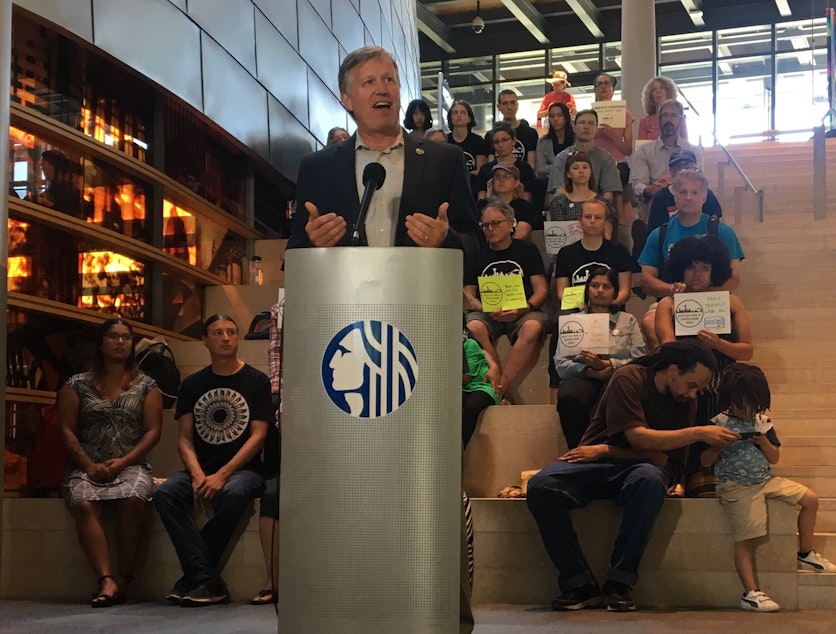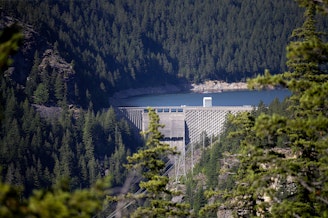Climate advocates urge Seattle to ban natural gas in new buildings

Climate activists in Seattle want to snuff out natural gas, starting with a ban on installing gas piping in new buildings.
They unveiled their latest pollution-fighting proposal the same afternoon that their resolution for a “green new deal,” which would eliminate fossil fuel use in Seattle by the year 2030, was approved by the City Council’s Sustainability and Transportation Committee.
Cars and trucks are Seattle’s biggest source of climate-damaging pollution. But buildings, with their gas water heaters, boilers, furnaces and stoves, are the second biggest.
“Our electrical grid is already CO2 free,” said activist and former mayoral candidate Nikkita Oliver. “So as new buildings are being put up, we can be asking developers, we can be putting in regulatory initiatives that actually require that buildings are green, that they make use of the green technology that’s in front of us.”
“Natural gas is an important part of the energy mix,” Puget Sound Energy spokesperson Janet Kim said in an email, “ensuring our customers’ homes are warm and the lights are on when the sun isn’t shining or the wind isn’t blowing.”
Humanity has to step away from using fossil fuels as fast as possible if the world is to avoid dangerous levels of climate change.
Climate activists are saying that includes natural gas, a fuel that used to be considered relatively clean.
A natural gas flame puts out more energy and less carbon dioxide than other fossil fuel combustion does. But leaks of heat-trapping methane in natural gas production and distribution makes the clean-burning fuel a big climate threat.
Activists with the groups Got Green and 350 Seattle hope Seattle will follow the lead of Berkeley, California. That city last month became the first in the nation to ban natural gas in new houses, townhomes and small apartment buildings.
Pacific Gas and Electric, the local energy utility, supported the proposal.
The proposed Seattle ban would apply to all residential and commercial buildings.
The activists did not have an estimate for what a ban on new gas hookups, or the much broader green new deal, might cost developers, homebuyers or taxpayers, or how the money to pay for it would be raised.
Councilmember Mike O’Brien said the cost of not addressing climate change would be “astoundingly high.”
Mayor Jenny Durkan has not announced a position on the gas ban or the green new deal.
On Tuesday, she separately proposed a 24 cents per gallon tax on heating oil, with the revenue to fund rebates for 3,000 homeowners who install energy-efficient electric heat pumps.
According to the mayor's office, as many as 18,000 Seattle homes heat with oil.
Many more use natural gas.
According to the city's latest inventory of greenhouse gas emissions, natural gas use in Seattle buildings causes 12 times the climate pollution that heating oil does.
The full City Council is expected to vote on the green new deal resolution on Monday.
At least one climate activist expressed some skepticism of the resolution on Twitter.
“I'm 100% behind these goals, but we have a track record of not meeting our climate 'goals,'" Kyle Murphy with Carbon WA tweeted. “I'll be more excited when specific funding sources for climate investments and specific binding regulations to get us there are on the table.”
Seattle's climate action plan aims to eliminate carbon emissions by the year 2050, but the city's emissions have continued to rise in recent years.
This story has been updated.




